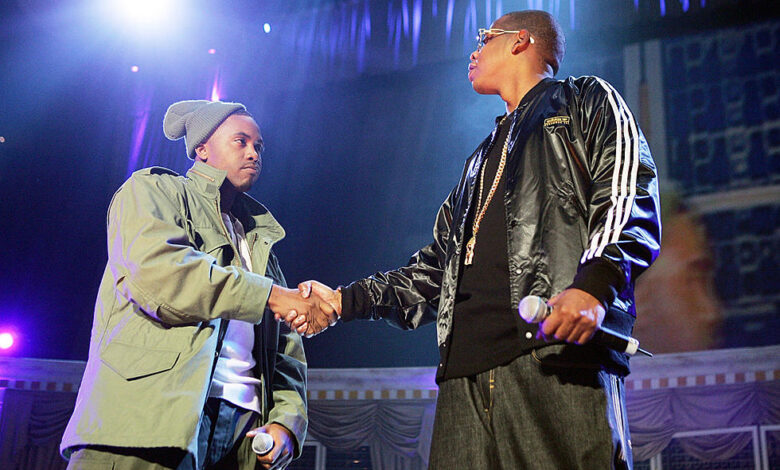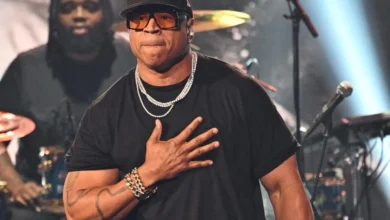Inside Jay-Z and Nas Beef

The rivalry between Jay-Z and Nas is one of the most iconic in hip-hop history, characterized by lyrical warfare, public diss tracks, and a battle for dominance in the rap game. The feud began in the late 1990s and lasted for several years, with both artists exchanging harsh words through their music. However, this beef eventually evolved into a mutual respect, leading to one of the most significant reconciliations in hip-hop culture.
The Beginning of the Beef
The origins of the Jay-Z and Nas feud can be traced back to the late 1990s, when both artists were rising stars in the hip-hop world. Jay-Z, who was emerging as a business mogul and rapper, was viewed by many as a competitor to Nas, who was already established as one of the greatest lyricists in the genre. Tensions between the two began to build over time due to perceived slights and competition for the throne of rap royalty.
At the core of the dispute was the city of New York, where both artists hailed from. Jay-Z represented Brooklyn, while Nas was a Queensbridge native. The rivalry between their hometowns fueled the animosity, but it wasn’t until the release of Jay-Z’s album Vol. 2… Hard Knock Life in 1998 that the beef truly ignited. Jay-Z’s track “The City Is Mine” seemed to take shots at Nas, and Nas fired back with his own subtle jabs.
The Diss Tracks
The feud reached its peak with the release of two iconic diss tracks. The first was Jay-Z’s “Takeover,” released in 2001 as part of his The Blueprint album. In this track, Jay-Z targeted Nas, accusing him of being past his prime and questioning his credibility in the rap game. The lyrics were direct and harsh, calling Nas out for his lack of commercial success compared to Jay-Z’s own rise to the top.
Nas responded with “Ether,” a scathing diss track released later that year. “Ether” is often regarded as one of the most brutal diss tracks in hip-hop history, with Nas taking aim at Jay-Z’s persona, his credibility, and his alleged involvement in questionable business practices. The song’s impact was immediate, and it seemed to deal a crushing blow to Jay-Z’s reputation.
The back-and-forth continued with both artists releasing songs aimed at each other, but “Ether” is generally seen as Nas’s definitive response. The feud seemed to intensify as both artists’ careers flourished, and the rivalry captured the attention of hip-hop fans worldwide.
The Reconciliation
Despite the intensity of the beef, the resolution came in an unexpected and memorable way. In 2005, during the I Declare War tour, Jay-Z and Nas shared the stage together at a concert in New York City. The moment was a symbol of their newfound respect for each other, as they performed their hit songs and even collaborated on a track titled “Black Republican.” This collaboration marked the end of their public feud and signaled a new chapter in both of their careers.
In interviews following their reconciliation, both Jay-Z and Nas spoke about the personal growth that came from their feud. They acknowledged that the rivalry had been driven by competition, pride, and ego, but it had ultimately helped push both of them to higher levels of creativity and success. The two artists now share a mutual respect and have occasionally collaborated on projects and live performances.
Legacy of the Beef
The Jay-Z and Nas beef is considered one of the most significant events in the history of hip-hop, not only for the music it produced but also for how it shaped the culture. It highlighted the intense competition that exists in the rap world and the lengths artists will go to defend their place at the top. The feud also showcased the power of the diss track in hip-hop, as both “Takeover” and “Ether” remain landmarks in the genre’s history.
More importantly, the reconciliation between Jay-Z and Nas serves as a reminder that even the most bitter rivalries can evolve into mutual respect. Their ability to put aside their differences and collaborate has been an inspiration to many artists in the industry, showing that competition can fuel creativity, but growth and maturity often lead to unity.
In the end, the Jay-Z and Nas feud is more than just a rivalry; it’s a testament to the power of hip-hop to reflect personal struggles, growth, and the ability to overcome adversity.




